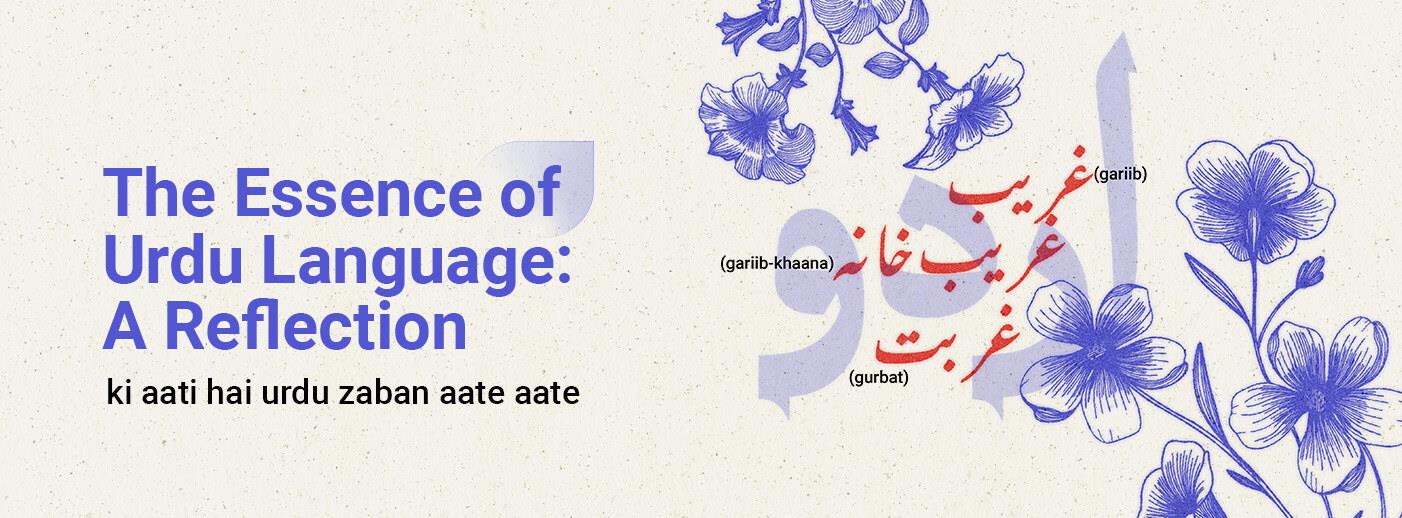अधिक खोजे गए शब्द
सहेजे गए शब्द
खिस्यानी बिल्ली खम्बा नोचे
जिसे क्रोध आ रहा हो वह अपनी खीझ या क्रोध दूसरों पर उतारता है, लाचारी में आदमी दूसरों पर क्रोध करता है, लज्जित व्यक्ति दूसरों पर अपनी लज्जा उतारता है, निर्बल की खीझ
कोशिश
कोई काम करने के लिए विशेष रूप से किया जानेवाला प्रयत्न, मेहनत, दौड़ धूप, प्रयत्न, प्रयास, चेष्टा, उद्योग, श्रम, उद्यम, उपाय, परिश्रम
आठ बार नौ त्योहार
सुख-सुविधा और आराम का शौक़ या लगन ऐसा बढ़ा हुआ है कि युग और समय उसको अल्प व्यय नहीं करने देता
चमनिस्तान
ऐसा बाग़ जहाँ फूल ही फूल हों, ऐसी जगह जहाँ दूर तक फूल ही फूल और हरा भरा नज़र आए, वाटिका, चमन, बाग़
दादरा
संगीत में एक प्रकार का चलता गाना (पक्के या शास्त्रीय गानों से भिन्न), एक प्रकार का गान, एक ताल
The Essence of Urdu Language: A Reflection: ki aatī hai urdu zabāñ aate aate

The renowned Urdu poet Daagh Dehlvi, whose ghazals have been sung by numerous illustrious artists, says about Urdu language, in one of his much quoted shair:
nahīñ khel ai 'dāġh' yāroñ se kah do
ki aatī hai urdu zabā aate aate
(Oh Daagh! Tell the friends, it is not a game;
mastery in Urdu takes time)
Urdu is a language that unfolds its layers with experience and exploration. Let us explore a familiar Urdu word, "gariib" (غریب), which means "poor," in contrast to its antonym, "amiir" (rich).
The term "ghariib-khaana" (غریب خانہ) is often used humbley in conversation to refers one's abode.
Aap kal mere gareeb-khaane par tashreef laiye
Interestingly, the word "gariib" traces its roots to Arabic, where it denotes a stranger, outsider, foreigner, or traveller. This Arabic word is also associated with rarity or something archaic. In Urdu, it is frequently paired with "ajiib" (عجیب), both signifying something surprising or extraordinary.
Furthermore, there is a compound word, "ghariib-ul-vatan" (غریب الوطن), commonly encountered in Urdu poetry. This word describes a foreigner or migrant who has left their homeland and currently lives elsewhere, or one who is living in exile.
In a similar context, the term "ghurbat" (غربت) is utilized in Urdu to signify both poverty and exile. This notion finds expression in a famous couplet from Allama Iqbal's poem “tarana-e-Hindi," originally composed in 1904 as a patriotic anthem for children that have since become a beloved part of India's cultural repertoire:
“ġhurbat meñ hoñ agar ham rahtā hai dil vatan meñ
samjho vahīñ hameñ bhī dil ho jahāñ hamārā”
(If we are in exile, yet our hearts dwell in homeland,
In fact, we are there where our hearts reside.)
In this couplet, "ghurbat" describes the plight of an exile and love for their homeland.
Another Arabic-derived term commonly used in Urdu to describe someone without means is "muflis" (مفلس), referring to poverty. This term resonates in a poignant verse by Meer Taqi Meer:
Shaam se kuchh bujhā sā rahtā huuñ
Dil huā hai charāġh muflis kā
(Since evening, I reside in some dimness;
My heart has become like the lamp of a penniless man.)
Another Persian-origin word frequently used for the impoverished is "naadaar" (نادار). Additionally, "tang-dast" (تنگ دست) refers to individuals who possess little or no wealth, while "tang-dastii" (تنگ دستی) articulates the concept of penury. Moreover, the Sanskrit-origin word "kangaal" (کنگال) describes someone who is extremely poor, and "qallaash" (قلاش), a Persian-derived term, is similarly used.
The Urdu language is replete with a vibrant array of words, each eager to unveil its beauty and depth. We look forward to exploring more facets of this enchanting language in the future.
Delete 44 saved words?
क्या आप वास्तव में इन प्रविष्टियों को हटा रहे हैं? इन्हें पुन: पूर्ववत् करना संभव नहीं होगा





